2021: Year in Review
The year is over, and it’s time for a review. What started as a simple Instagram story in 2018 evolved into a blog post in 2019 and became a tradition in 2020. So here we are at the end of 2021. It’s weird to write this in the middle of a pandemic, but I somehow feel this was the best year yet. So much has happened. So fast.
Writing
Let’s address the elephant in the room. I wrote 0 posts1 this year. I have a post that I’m writing for years now, and I honestly thought I would do it this year. Nope. 🙈
I did some writing on my Instagram, though. And you’re like, wait, Instagram? Really? Isn’t that only for showing snapshots of how amazing your life is, letting people fill in the gaps, and presuming everything is awesome? Who reads captions there anyway?
I don’t know. And honestly, I don’t care either. Not for how many views, likes, or followers I get. I’m a very non-competitive person, and the older I get, the more I appreciate this quality of mine. I like taking photos, and I like writing. So now I’m doing both on the social platform I like most - Instagram. And yes, I know it’s owned by Facebook Meta2, but unfortunately, there aren’t any real alternatives for this kind of media. But I digress.
Most of my writing this year I did in an app called Polarsteps. You might not be familiar with it, but everyone who used it or what it produced loves it. I learned about it in the podcast episode with Joren De Groof. It’s an app best suited for travelers - it gives you the ability to track your travels, add photos, videos, and stories, and then package all that in a great UI. You can scroll the map, explore the travel steps, or, and this is the killer feature, you can generate a travel book. It’s a beautiful, hardback, perfect-to-show-off landscape format photo book with your route, travel stats, everything you’ve written down, and all the photos you select. Can not recommend it enough!
Iceland
If you follow me anywhere, you probably saw this one coming. Iceland has been on my bucket list for years, but this year the stars aligned. In June, my friend Maja3 and I booked plane tickets from Milan and a KúKú campervan, and then pretty much forgot about it until late July, when it was time to go. It has been the most impactful trip I did this year and, most likely, this life. And yes, this is what I used Polarsteps for. I’m not going to go too deep in this blog post, so if you want more details or just more of my writing/photos, feel free to check it out.
What everybody tells you about Iceland just doesn’t resonate until you experience it firsthand. Driving across its roads is almost undescribable. The landscape changes are complete and constant. Every 100 or so kilometers, it’s like you’re on a different continent. From grass-covered hills with waterfalls every 100 meters, to moss-covered flatlands, to completely barren orange land where nothing grows, to thick pine tree forests,…, this place has everything. 🤯
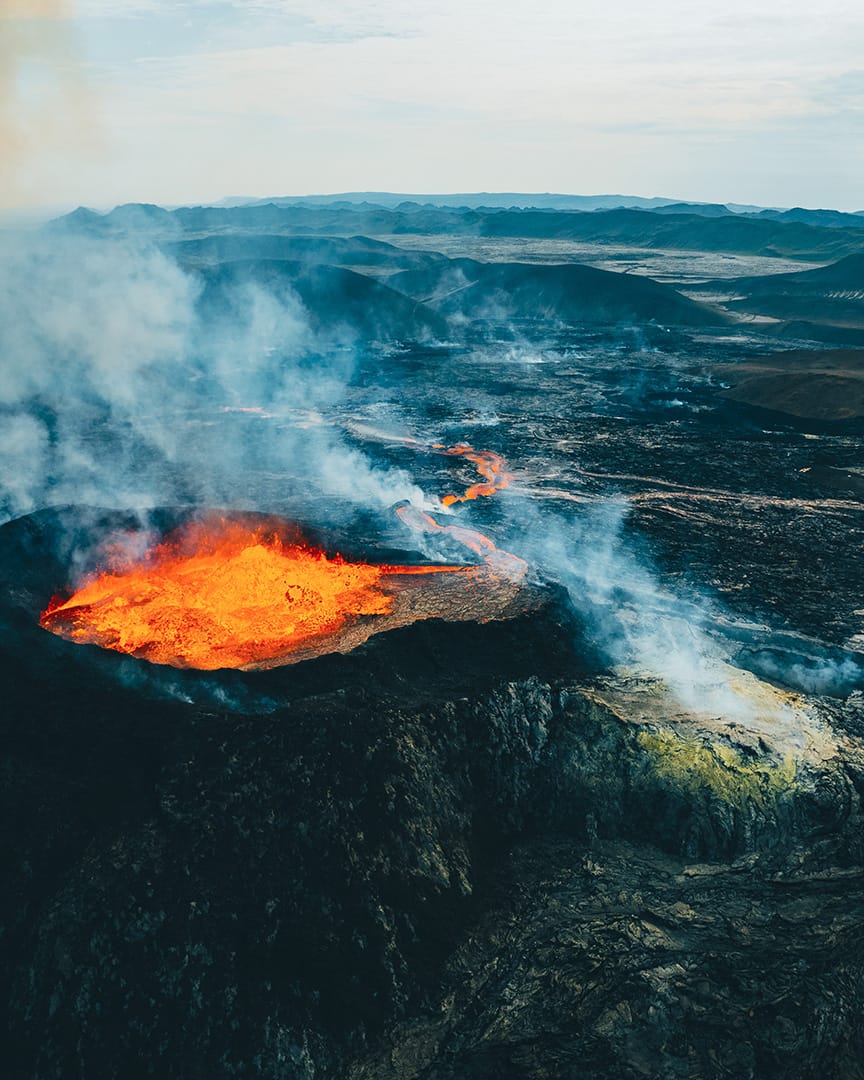
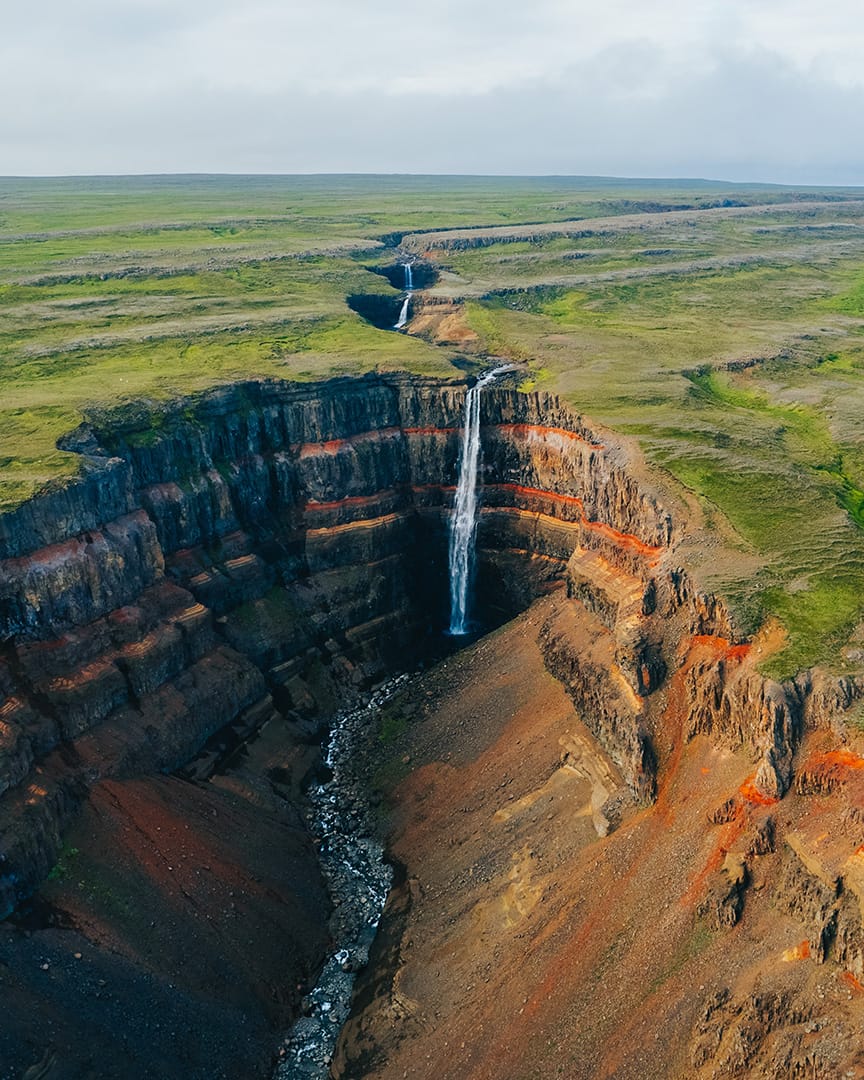
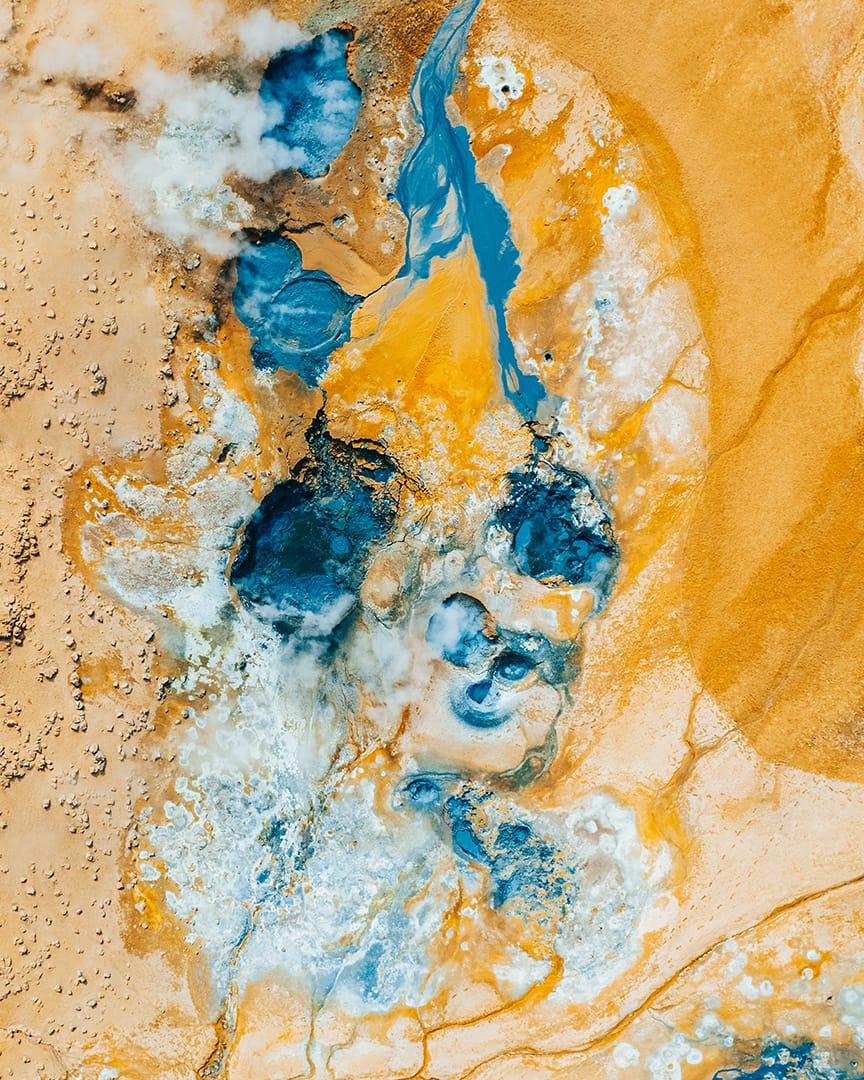
But what we were most lucky to experience was seeing an active volcano up close. Nothing prepares you for this. You can see me staring into it in the header of this blog post. That’s pretty much how I was after I finished flying the drone and capturing my best video yet. How is this natural? It 100% looks like CGI. It’s unlike anything I ever saw/heard. While I believe my photos and video are great, they don’t do it justice at all. It’s constantly bubbling, spitting, and changing. It’s also quite loud - it sort of sounds like ocean waves, but with much deeper and more violent growling notes. And it feels like…you know, when you look into a campfire, and your thoughts sort of wander away, and you’re in a kind of trance? That times a thousand. If you ever get a chance to visit an active volcano - do it! 🌋
Photography
I’m still in love with my Leica Q2 that I bought in 2019. You can read all about it in the 2019 Year in Review post. But my favorite photos from Iceland are the ones taken with the drone. When flying it and taking photos, you feel that drones were created for Iceland. They give you a whole new perspective to appreciate an already incredible land. And speaking of them, I upgraded to DJI Air 2S this year. The 1-inch sensor really makes the difference in photo quality, and I’m incredibly grateful to have had it when visiting Iceland.
Both also came in handy in late June in Croatia. First, we had an island-hopping company retreat. It was so great hanging out with people I work with every day in person. Sure, Friday Zoom hangouts are fun, but nothing can replace being together 24/7. Literally all the hours for 7 days.
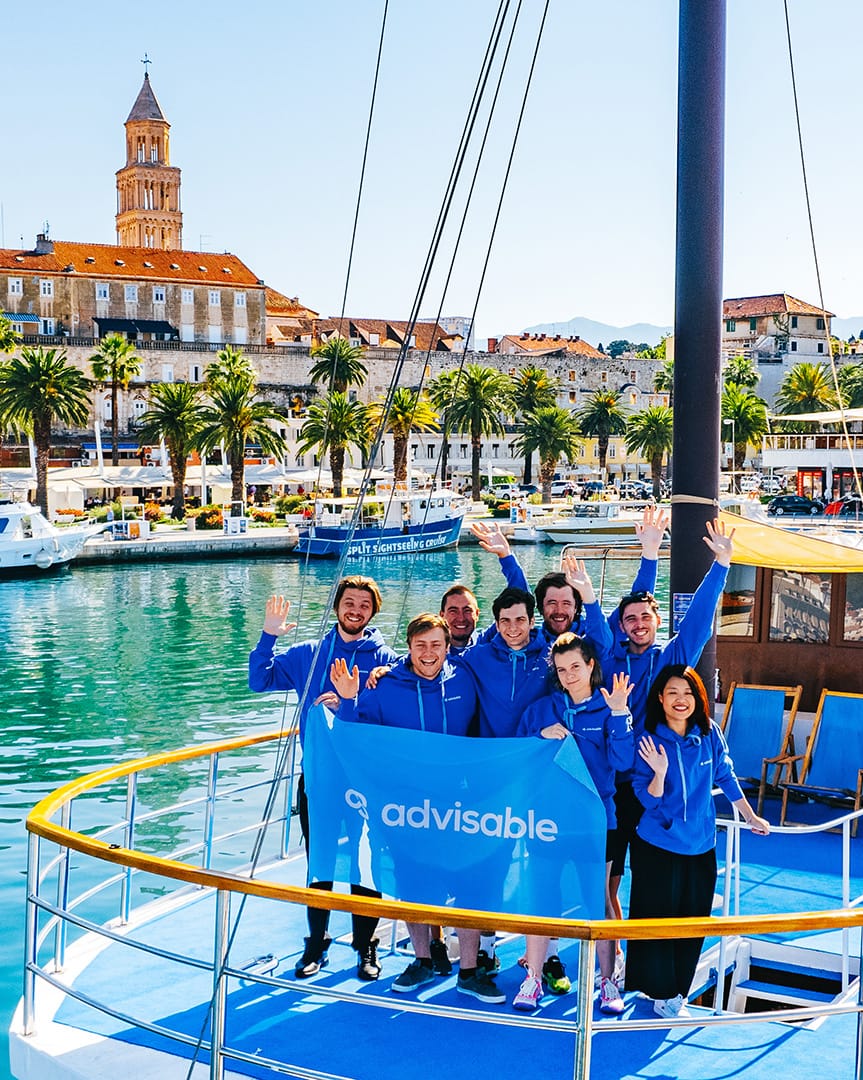
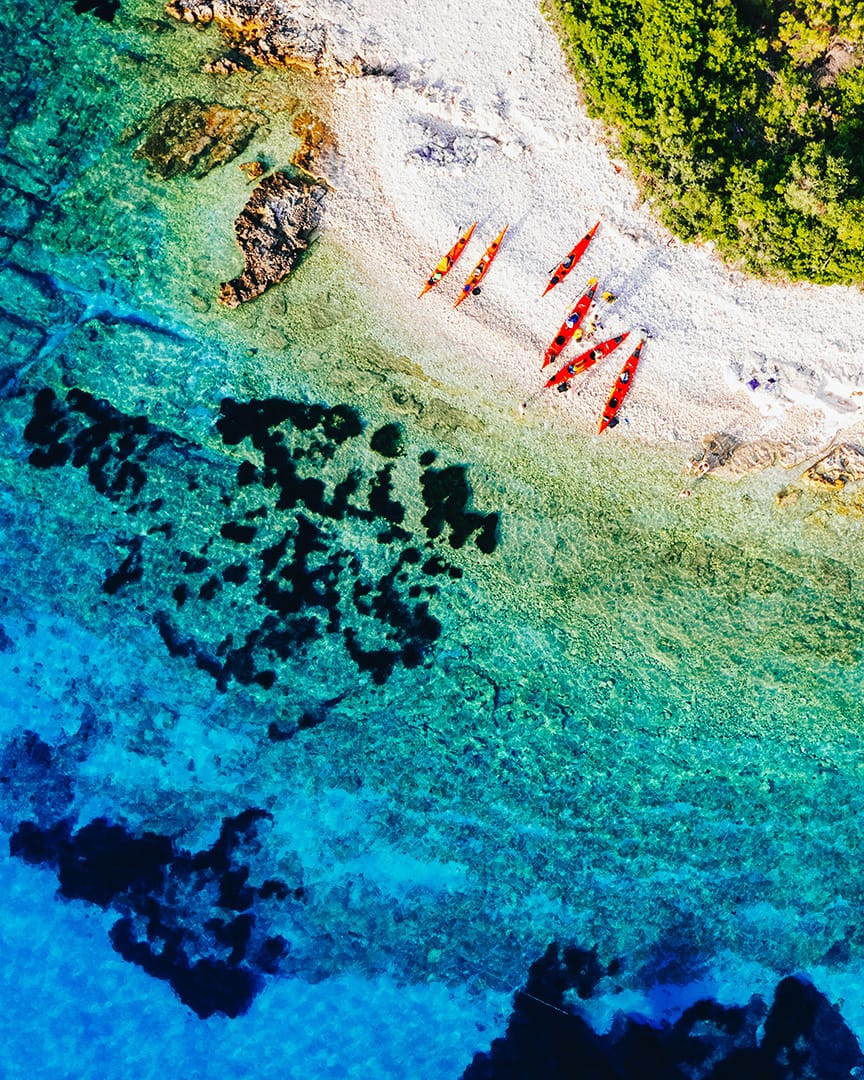
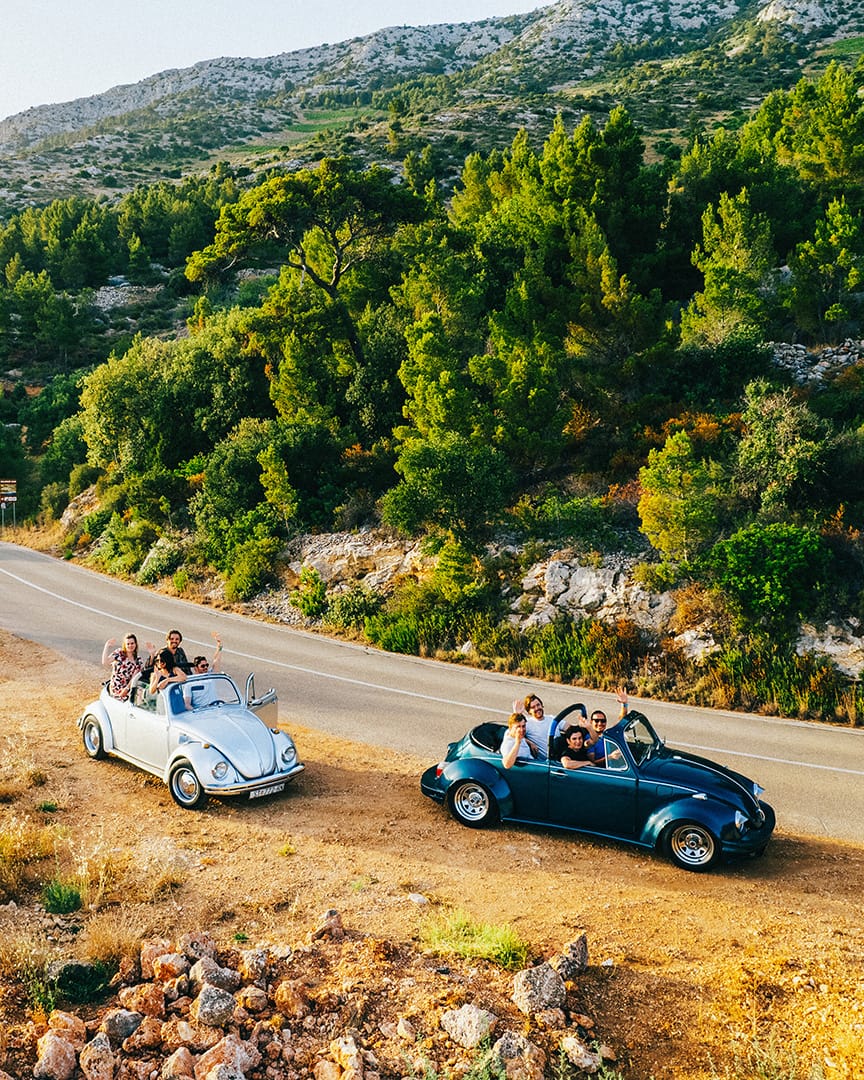
After we wrapped up the retreat in Split, I took a couple of days to be with myself in Makarska riviera. There is something very relaxing going to places you know well and where you can just wholly disconnect your brain. Also, I just had to visit King restaurant, like I do every year. 🥰
Then I drove up to Plitvice lakes. I’ve wanted to visit this place so many times but somehow never done it. I had perfect weather, and it was just before the high season, so I could really experience it fully. I spent almost 9 hours walking around, totaling over 32k steps or 27km. It’s an absolutely incredible place. The only sad thing about it is how poor the tourist experience is and its maintenance. With better management, this place could reach much higher highs.
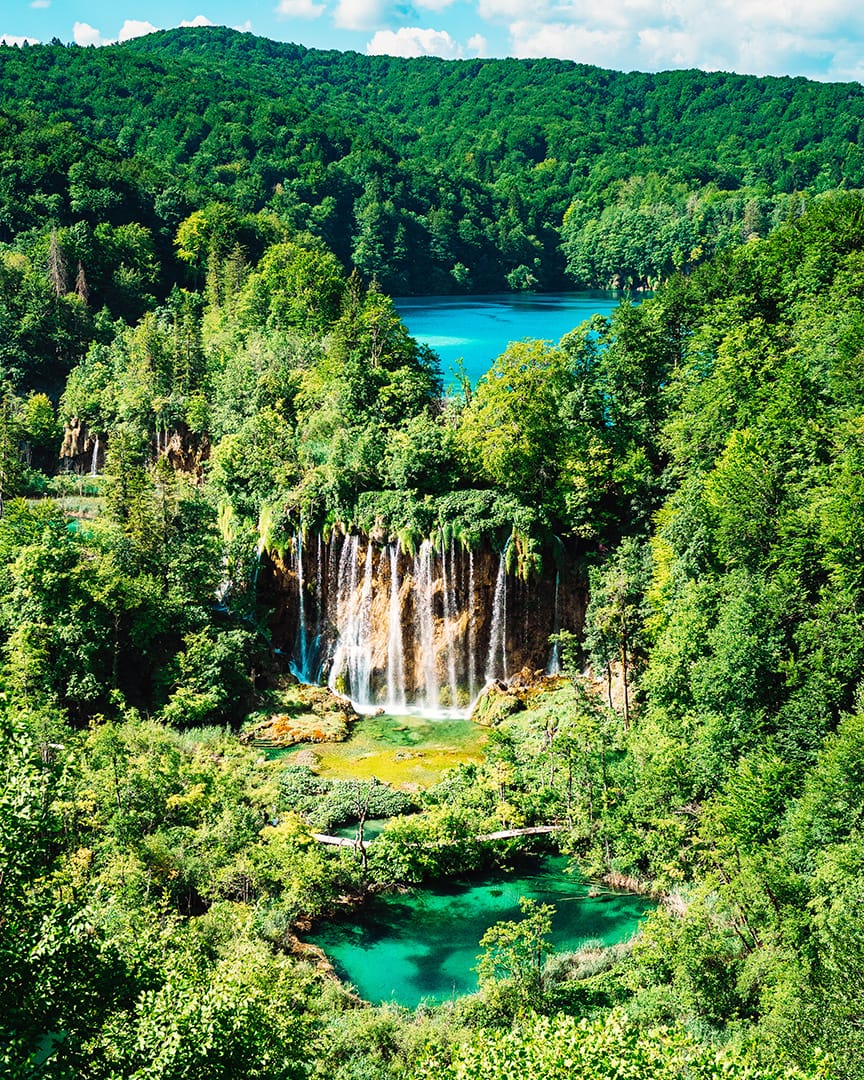
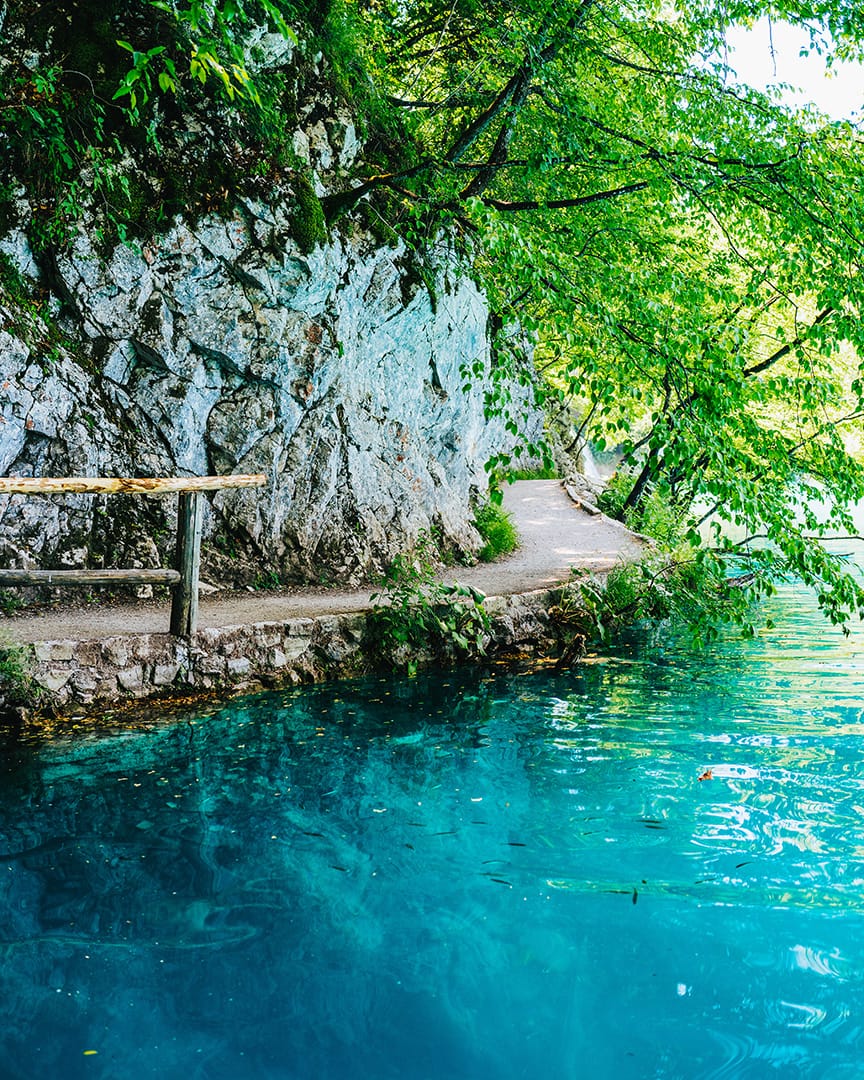
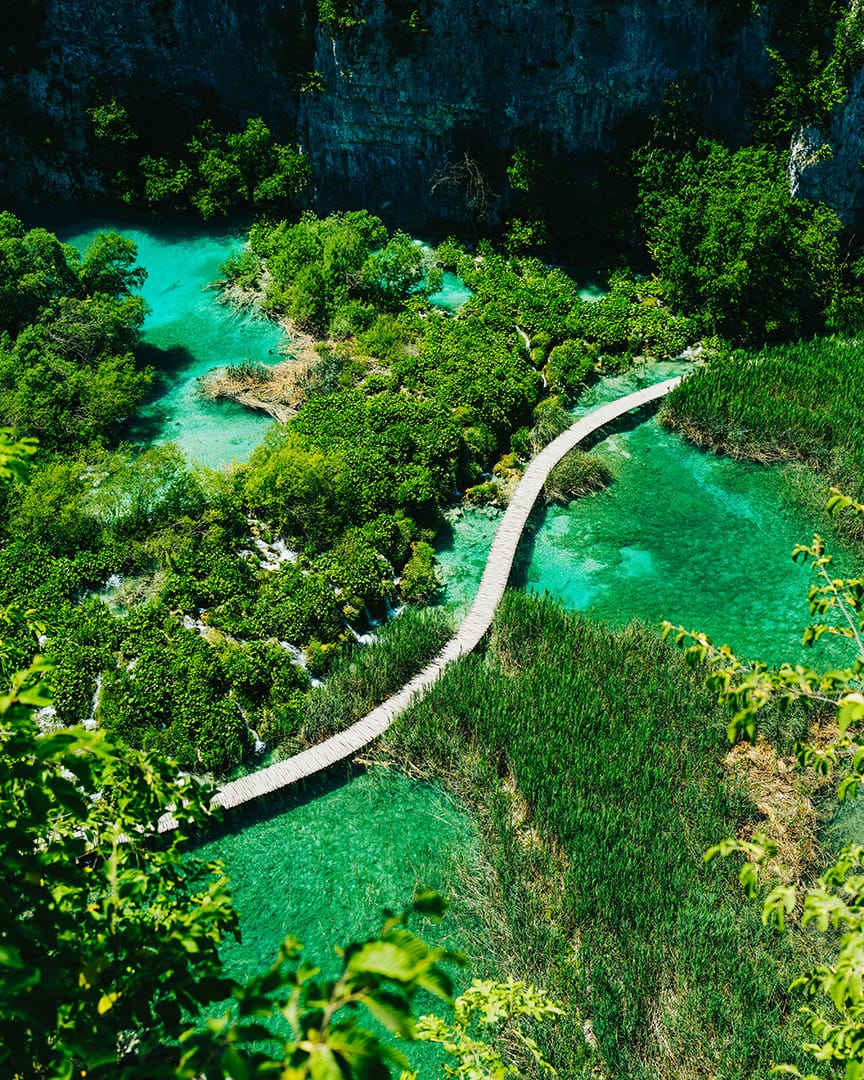
And just a couple of days ago, I had an opportunity to experience another new thing. As you know, I’m absolutely in love with my Leica Q2. Which, of course, makes me lust over its older cousin M. Now, if you don’t know anything about Leica M-series, here’s a short description: they’re rangefinder cameras that are very expensive, offer fantastic compact lenses with no autofocus, and have a cult following. They have changed dramatically little since the first model was introduced in 1954. Yes, they went digital in 2006, but other than that, you really have to be in the know to tell the models apart. Leica sometimes goes the extra mile with this - in 2016, they introduced M-D, which has no back screen. Yes, really. A digital camera with no screen. For that authentic film experience. 😅
I’ve never held or used an M camera or any other rangefinder camera. However, through the years of owning Q2, I connected with Nico, who works at Leica. He was in Zagreb and was extremely nice - he let me take his M for a spin around the town. I can now completely understand why so many people are obsessed with it. It’s a different kind of beast. It forces its workflow on you, and because of that, you take very different photos than you usually would. It’s hard to explain and out of the scope of this blog post, really. But suffice to say that I was simultaneously blown away and convinced it’s not the camera for me. Which was both exciting and disappointing. 😂
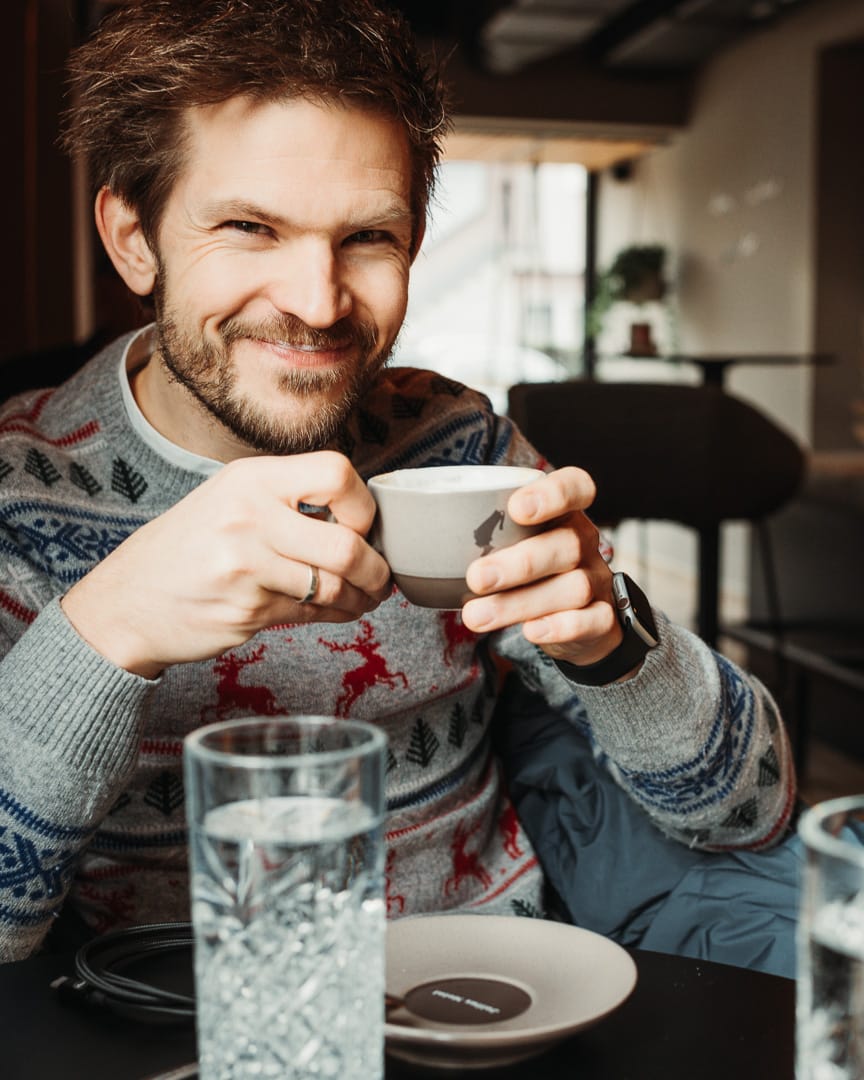
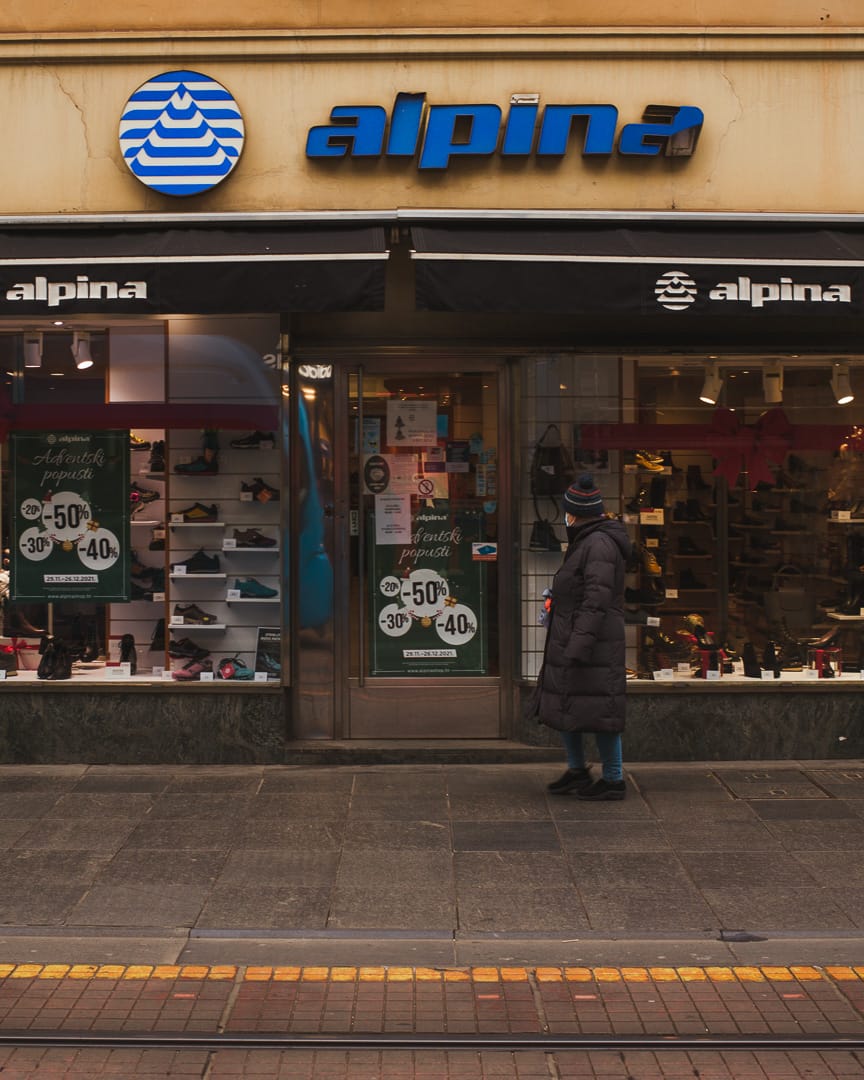

The New Normal
There’s no way around discussing this, is it? Remember when we thought it would last only a couple of weeks or months? I’ve put my podcast on a temporary pause because I thought I’d be able to avoid the topic. And when the summer was starting, I believed again we were through the worst. They brought the Ment festival back, and it was the first time I went out to a concert again. I don’t like crowds. I don’t like the feeling of being squeezed in by other people. But take that away for over a year, and damn did I start to miss it. Live music was back. Life was back. It was incredible. 🥳
Reading
Looking at my Goodreads Year in Books, I can see I read 31 books. Again, I consumed the majority in the audiobook form via Audible. But I did read a couple on the new Kindle Paperwhite. It now comes with adjustable warm light, which makes all the difference for me. The intense blue of the previous generations was just too much for me to read in bed.
As traditional, here are recommendations from the books I read this year:
Man’s Search for Meaning by Viktor E. Frankl
An absolute classic, which I’ve now finally read. It’s a short book, but it’s hard to digest. Do yourself a favor and read this. Seriously.
Everything can be taken from a man but one thing: the last of the human freedoms—to choose one’s attitude in any given set of circumstances, to choose one’s own way.
Less Is More by Jason Hickel
I was reading a lot on global warming climate change this year. It all started with Gates’s How To Avoid A Climate Disaster which I found very interesting. It puts a lot of faith in the future tech that will save us all. I followed it with The Uninhabitable Earth by David Wallace-Wells, which paints a grim picture. But Less is More takes a more holistic look. Allow me to quote my own review:
I went into this book with the “capitalism is not perfect, but it’s not that bad compared to communism” mindset. This book opened my mind to the fact that this is not a duopoly. Democracy and capitalism do not come hand in hand. And what’s at the core of capitalism is continuous growth. Primarily for growth’s sake. A sort of larpurlartism, if you will. And here is the crux of the situation we find ourselves in these times: growth and ecology simply can not co-exist.
I disagreed with the book a lot while reading it. It also frustrated me several times. But in the end, I recommended it to many friends and also here. This should tell you everything you need to know.
Titan: The Life of John D. Rockefeller, Sr. by Ron Chernow
It is the longest book I read this year. It gives a very detailed look into a highly complex person and his family. It was interesting to read how capitalism was being formed and how even the symbol of capitalism himself preferred companies working together rather than leaving things to the “free market.” He believed that the competitive free-for-all eventually gave way to monopoly and that large industrial-planning units were the most sensible way to manage an economy.
It is hard to dislike the guy because he was the foremost philanthropist. Rockefeller accelerated the shift from the personal, ad hoc charity that had traditionally been the province of the rich to something both more powerful and more impersonal. He established the promotion of knowledge, especially scientific knowledge, as a task no less important than giving alms to the poor or building schools, hospitals, and museums. He showed the value of expert opinion, thorough planning, and competent administration in nonprofit work, setting a benchmark for professionalism in the emerging foundation field.
The Phoenix Project by Gene Kim
A very interestingly written book. It’s not your typical software manager book full of dry advice, but instead follows Bill, who became a VP of IT Operations overnight and inherited a department in disarray. We follow the narrative of Bill through his eyes in a novel form. Not novel like new, but novel like, well, novel. It reads in a very different way, so it also hits differently.
The book reminded me of several instances from my career, and I honestly can not recommend it enough if you work in the field.
How to Change Your Mind by Michael Pollan
My mind was already changed to the point where I believed that psychedelics are an incredible class of drugs that we should be exploring much more. But Michael really takes you by his hand, detailing his experience from 0 to convert. From skeptic to an interested person, to convict. If you’re new to the world of psychedelics or already a believer, this book is for you. I guarantee you’ll learn a lot.
Blueprint for Revolution by Srđa Popović
I absolutely devoured this book. Written really well with great flow, a pinch of Serbian humor, and many Lord of the Rings references. But mainly, it’s about global activism, protests, and how to successfully form and run a group for a cause. Srđa gives a ton of examples of how nonviolent way is always the way, but this one sealed it for me:
There’s a real danger to a movement that becomes violent, and it’s that violence makes it hard to tell the good guys from the bad guys.
If you are interested in activism, I can not recommend it enough.
Running with Sherman by Christopher McDougall
I was already a fan of Christopher’s books Born to Run and Natural Born Heroes, so I immediately added it to the Want to Read list when I found out about this one.
But this one is nothing like the other two. I don’t want to give anything away, but it intertwines everything from running, working with animals, living on a farm far from “civilization,” autism, mental health,… to Wim Hof Method. The story is fabulous and hilarious, and I can’t wait to re-read it.
Running
And speaking of running - I again ran a lot. I just came back from the last run this year as I’m writing this. To quote my Strava stats: this year, I ran 3,502.7 kilometers (2,176.4 miles) with 70,139 meters (230,115 feet) of elevation gain. This means that yes, I was out on trails a lot again. I did run a bit less than last year, but running was my only escape in the first corona lockdown. And this year, there was about a month total when I didn’t run: the company retreat mentioned above and the Iceland experience.
2 events stand out, though:
Julian Alps Trail Run
The most brutal run of my life. It was the “30km” Sky Race that, in reality, was 34km with 1,670 meters ascent and 1,790 meters descent, and the route profile was…interesting. It started with a steep climb to Golica, dropped down to Jekijevo sedlo, back up to Hruški vrh, and then entered a long and steep descent to Dovje. Then the real mental challenge began—about 9km of tarmac, generally reserved for cycling. And the whole time, there was a slight ascent. Not to mention the scorching summer-like sun. And, just as I thought the end was near, a very steep climb to Srednji Vrh awaited. With my energy almost gone and my quads already destroyed, I now had to navigate another steep descent. Barely surviving, I entered Kranjska Gora and could smell the finish line, but they didn’t let me have it. I had to enter a roundabout maze around it for another 2km or so. Soul crushing.
All that said, it was also one of the most enjoyable runs I did. The weather was perfect, the views on the ridge were spectacular, and almost the entire run, I had the fantastic company of either Jernej, Blaž, or both. With Blaž, we also crossed the finish line virtually at the same time. I was delighted with the final result of 4:51:40.
Ljubljana Marathon
I started running in 2014 when I ran a half marathon, and from 2015 on, I ran a marathon every year except in 2020, when it was canceled for obvious reasons. But I haven’t run a longer than 15k run on asphalt since that last marathon in 2019. I ran quite a lot these past 2 years, but I rarely ran at a constant pace. Trail running is firstly slower, but secondly, and more importantly, very dynamic. Constant speed is unheard of.
So attending the Ljubljana Marathon this year, I had 0 expectations. I didn’t even know what time to aim for / what pace to set for myself. I knew I could finish, so I told myself I’d aim for 3h45min and then adjust the pace based on how I felt. And then we were off. I was flying: constantly under 5:00 minutes/kilometer and kept telling myself to hold back since the marathon is a very long race. Around kilometer 23, I started seeing the 3h30min pacers about 200m in front of me. I got closer and closer, but at around 37km, my legs started telling me that this was too much. The lack of long training runs began to materialize. I dropped my pace a bit but never down to walking. Kept running. Like Forrest. 🏃
The end result was a personal best 3:31:48. Way above my expectations, and the overall feeling was just incredible. I’ve never felt this good after a marathon race. I always had problems: blisters, cramps, overheating,… but this time? None. For the first time in my life, I can honestly say: I enjoyed this marathon race. 🥰
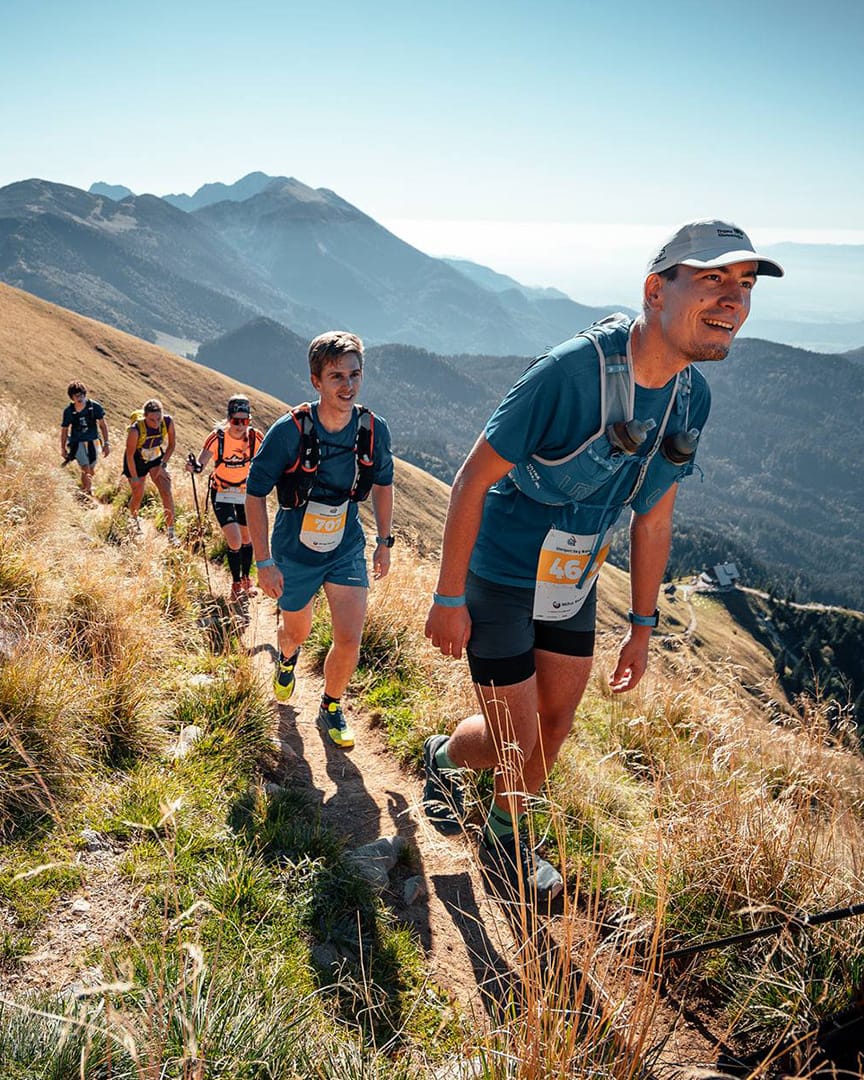
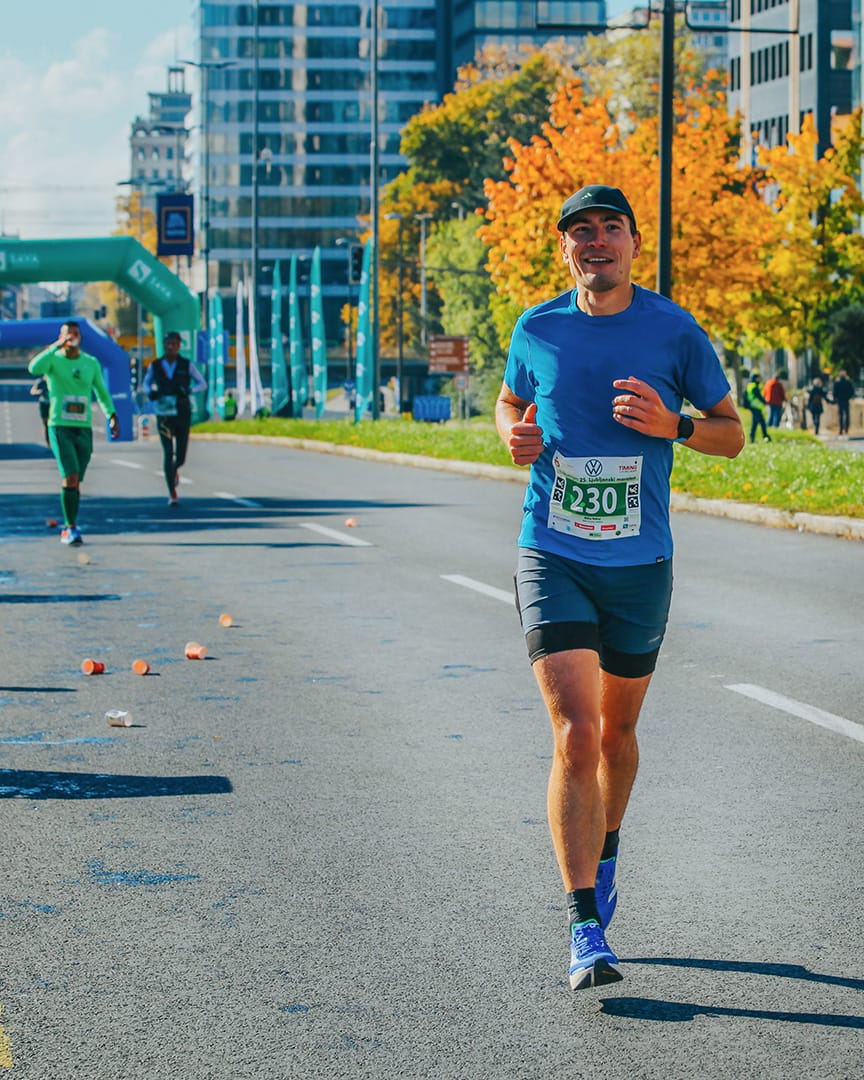
Coffee
Last year, I wrote about getting a Decent and making a simple web app to look at the data it generates. That little app grew a lot - as of this writing, it has 1.204 active users who’ve uploaded over 200.000 shots. To say this exceeded my expectations would be a gross understatement.
In January, I got excited about recent developments in Rails4 and decided to basically rewrite it all and release a v2. But then, while not visually as significant, the change I made at the end of April was as if I started from scratch. I replaced how the core of Visualizer works - the charting library itself when I switched to Highcharts. One of the things this enabled, for example, is one of the most used features nowadays: shot comparison. Since then, I’ve been steadily adding features and writing about them in the changelog.
I’m still in love with my Decent and love experimenting with it and all the coffees I order online or receive from friends. ☕
Wrapping up
Many more things have happened this year, but there’s only so much I can write in this blog post while still keeping it readable. I’m still practicing stoicism and journaling5, and most likely, that’s what’s keeping me sane in these crazy times. It’s also what’s pushing me outside my comfort zone. To try things I haven’t before. To be better than I was the previous day. To handle situations I would previously escape. Everybody is different, but at the same time, I believe absolutely everyone would benefit by keeping a journal. I can wholeheartedly recommend making that your New Year’s resolution.
In the end, let me just thank you for reading this. There’s no reason anyone should care about my life, but you do, and that means a lot to me! 🤗
Happy New Year 2022! 🎆

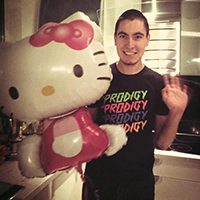
Comments